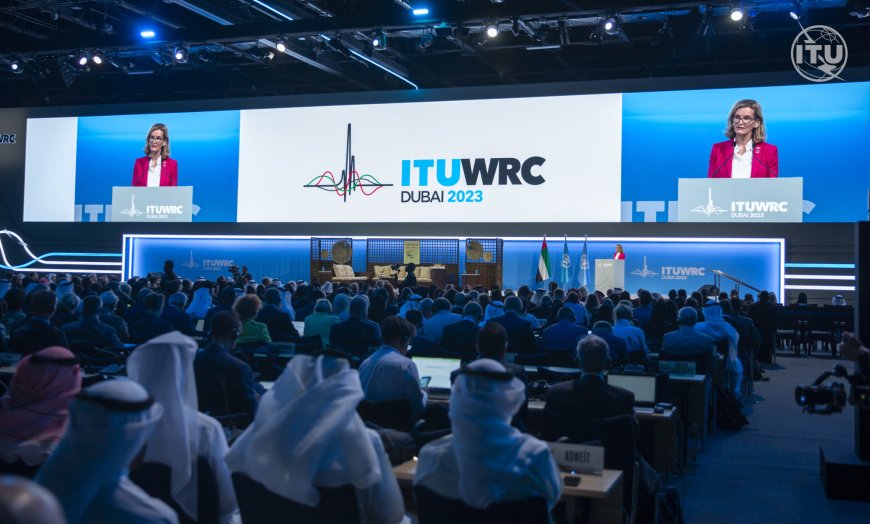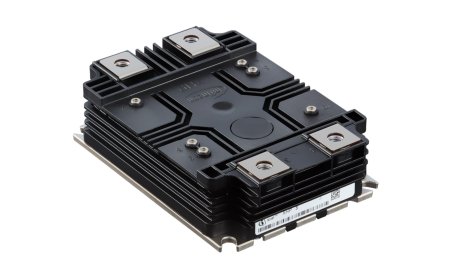Revolutionizing Mobile Communications: WRC-23's Historic Spectrum Decisions Set Stage for Global Connectivity Enhancement
The World Radiocommunication Conference 2023 (WRC-23) marked a pivotal moment in mobile communications with major spectrum decisions for 5G-Advanced and beyond, promising enhanced global connectivity.

The World Radiocommunication Conference 2023 (WRC-23) concluded with groundbreaking decisions in the realm of mobile communications, setting a precedent for the future of this ever-evolving field. This event, under the guidance of the International Telecommunication Union (ITU), a specialized United Nations agency, marked a significant step in harmonizing the use of radio spectrum for mobile technologies, known at the ITU as International Mobile Technologies (IMT).
A major highlight of WRC-23 was the agreement on new mobile low-band spectrum (below 1 GHz) and mid-band spectrum in the 3.5 GHz and 6 GHz ranges. These decisions are vital for the mobile sector, as they lay the groundwork for the development of 5G-Advanced technologies and beyond. The Global System for Mobile Communications Association (GSMA), representing mobile operators worldwide, has welcomed these outcomes, recognizing their potential to significantly advance the mobile communications sector.
“WRC-23 has provided a clear roadmap for mobile services to continue to evolve and expand for the benefit of billions across the globe,” said John Giusti, Chief Regulatory Officer at the GSMA. He further emphasized the GSMA's belief in digital inclusivity, stating, “The GSMA believes that no-one should be left behind in the digital age and the decisions of WRC-23 will allow us to deliver a brighter future where mobile brings communities together, delivers industrial agility and provides economic growth.”
The conference's resolutions are anticipated to support global digital ambitions, promoting greater digital equality and unleashing the full potential of connectivity. This includes the final harmonization of the 3.5 GHz band, known as the pioneer 5G band, across various regions including Europe, the Middle East, Africa, and the Americas. Notably, the new 6 GHz band (6.425-7.125 GHz) was identified for mobile use in every ITU Region. This band is now earmarked as the harmonized zone for expanding mobile capacity for 5G-Advanced and beyond.
Additionally, WRC-23 charted a course toward greater digital equality by defining the use of more low-band spectrum in the 470-694 MHz band in the EMEA region. These low bands are particularly effective in expanding internet connectivity in rural communities due to their wide-reaching signals. The new low-band mobile allocations will be instrumental in breaking down barriers to digital equality in the EMEA region, addressing the urban/rural connectivity divide.
Luciana Camargos, Head of Spectrum at the GSMA, highlighted the broader implications of these developments. “Over half the world is connected to the mobile internet today,” she said. “But, as mobile connectivity develops, we need to ensure that we can deliver services for everyone. The great legacy of WRC-23 will be in allowing us to do so sustainably, affordably and in a way that delivers for the whole planet.” She also called for action following the conference, stating, “We cannot stop here – WRC-23 is only the starting gun and now governments will need to act on its decisions, enabling new mobile technologies that embrace sustainability and unleashing the full potential of mobile to deliver a better tomorrow for our planet.”
The successful hosting of the conference by the United Arab Emirates and its telecoms regulator, TDRA, was acknowledged, with delegates recognizing their pivotal role in facilitating the complex negotiations. The leadership demonstrated at WRC-23 is expected to leave a lasting impact, remembered for its balanced yet bold decisions that are poised to drive digital evolution and global connectivity.
WRC-23 represents a milestone in the journey of mobile communications. The decisions taken have not only set the stage for technological advancements but also for a future where digital connectivity bridges divides, fostering a more inclusive and connected world. The onus now lies on governments and the mobile sector to implement these decisions, propelling the world into a new era of digital communication where the benefits of advanced technology are accessible to all.































